Chinese underdog Tian Houwei pulled off a dream semi-final performance to oust favourite Lee Chong Wei and make it to his first Grand Prix Final.
By Aaron Wong, Badzine Correspondent live in Sydney. Photos: Courtesy of ABO Media (live) and Badmintonphoto (archives)
Tian dares to dream
Denmark’s world number 15 Hans Kristian Vittinghus was completely right. I asked him to encourage the local New South Wales under seventeens second state team back in 2011 and here is an excerpt of the letter he wrote them:
“Last but not least, it’s important for me to tell you that believing is pivotal to your performance. No matter how big your opponent is, how strong he is, how fast he is, etc., etc., there is always a way to beat him/her. But you will have to believe it and believe it all the way. I’ve seen many players win matches they ‘should not be able to win’.”
The stars aligned for China’s Tian Houwei (pictured), ranked #196 in the world, when he played like a dream to assassinate the assumptions of ticket-holders that they would be watching the world number 1 Lee Chong Wei on Sunday. Malaysia’s Lee, one the other hand, remained rhythmless throughout the match and in the final game, adrift beyond his worst nightmare, he did glance, worryingly and desperately, towards his coach’s corner.
Tian Houwei plays much like Japan’s Sho Sasaki, not only for his southpaw talent, but with a similar preference for the flat shots and possessing of a magnificent centre of balance. After securing the first game 21-19 and also leading most of the second game and up to 15-14, he had planted the seed of a thought into the heads of the spectators that it is possible that the world number 1 can be beaten today.
The Chinese found success with the cross-court smashes to an increasingly tentative Lee’s forehand side. But Tian’s hallmark was the late retrieving of multiple netshots from the floor within inch perfection of the net that it could not been a fluke.
The Malaysian was beginning to get it right by changing to half-paced smashes, since it rocked his confidence that Tian could retrieve all of Lee’s signature high jump smashes – Tian having obviously studied dozens of tapes – and the odd blistering offense directed straight at the body of his opponent. Strange as it might sound, Lee could probably have definitively turned the tables if it were not for the second game interval breaking his concentration, but that’s all academic now.
Lee Chong Wei gave the Saturday spectators their value for money by managing the miracle of forcing the match into the deciding rubber but his unforced error rate only left him temporarily. Lee also let a number of shuttles fall inside the lines, only to compound his woes.
There was no second miracle, only what is humanly possible, as Lee plugged 7 out of the 9 points he was lagging behind but it became too much effort to recover beyond 18-20 and Tian was the one to advance to what would be an all-Chinese final.
Tian succinctly offered a clue to his success when asked whether today’s opponent was the toughest player technically he has ever crossed paths with, “I feel Chen Long and Lin Dan are better players.”
“I’m young and I felt fine going into the third game,” added Tian. “He is an older player and when I knew I was playing well and won the first game, I felt I had a real chance at victory.”
China’s Xue Song (pictured) threw his racquet in the air as high as graduates do with their caps on the day they receive their degree. It was easily his first real test throughout the week in Sydney and he couldn’t have known that after easily taking the first game 21-10.
The perennial crowd favourite, Yunus, did not let down the large Indonesian contingent who came to cheer for him. Alamsyah Yunus dug deep to really stretch extra for Xue’s cross-court smashes, which had done all the damage earlier. The Indonesian also believed in his own ultra fine net shot abilities despite the demoralising start, and his efforts paid off as he took the second game 21-18. Xue managed to innovate, too, by being extra patient and increasing smashing power to win the rubber, 21-15, after a total of 83 minutes.
“I prepared for this match using videos to study what kind of opponent I should expect with my coach,” said Xue afterwards.
And as we have come to expect of this soulful player, he continued, “Most importantly though, I made sure I was ready for this match in my heart. I give 100 percent in every stroke, in every point, in every match.”
“In the first game, I had not warmed up yet,” said Alamsyah Yunus (pictured) in his post-match interview, “and his offensive shots caught me off guard most of the time. In the second game, I was into the game and managed to win.
“In the third game at 10-11, I tried to attack, and tried to net more but he was waiting for it and I must admit that I was afraid to lift to him and trailed. I am not too tired but it is hard to keep the rally going.
“[Xue] is still young and very good already. In the experience aspect, he is still green but nevertheless he is very talented and we might see him become a great player in the years to come. He has a very good prospect.”
Asked about his continued success in Australia, where he has reached 3 semi-finals and one final in the past 5 years, Yunus answered, “The food here is very good, and I can find a lot of Indonesian food. Also the support from Indonesian supporters makes me feel tireless. Some of them even sacrifice their Saturday for me so I am very grateful for the support.
“I love Sydney, and the support from Indonesian here makes me want to come here again and again a lot of Indonesian food so I would love to be coming back next year.”
Suo Di defeated by last Thai
With China sending the 2009 World Junior Champion and the 2012 WJC runner-up to the men’s singles final, Suo Di’s pedigree as the 2010 Asian Junior Champion wasn’t enough of a pedigree to see her in to the Australian Open final.
It was an uncharacteristic start for Thailand’s Nichaon Jindapon (pictured), who found herself 2-10 down in the opening game against China’s Suo Di. Suo secured the opener 21-9 and must have then been stunned to lose the second game 8-21. Jindapon had discovered her breath and began to not only confound her opponent with a huge array of shotmaking but in the process twist and turn Suo off balance enough from attacking with vigour.
Jindapon won through to the final 21-11 in the rubber game and won many a fan with her covetable and extraordinary backhand cross-court net shots, which finally earned her a place in her first ever Grand Prix final.
“Yes, many errors at first…I’m sick today,” remarked the satisfied 22-year-old Thai later.
Click here for complete semi-final results
![AUSTRALIAN OPEN 2013 SF – The triumph of belief Chinese underdog Tian Houwei pulled off a dream semi-final performance to oust favourite Lee Chong Wei and make it to his first Grand Prix Final. By Aaron Wong, Badzine Correspondent […]](http://www.badzine.net/wp-content/uploads/Newsflash-thumbnail.png)
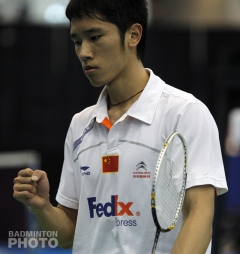
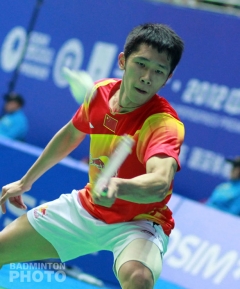
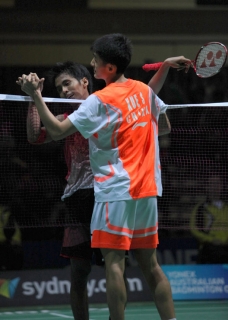
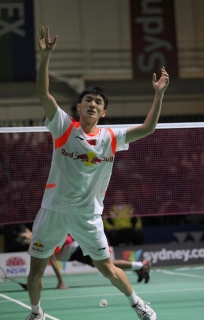
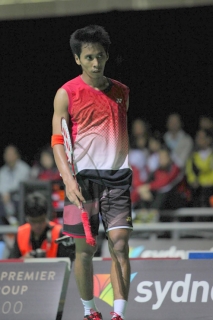
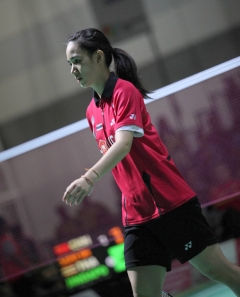

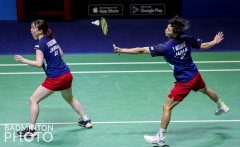
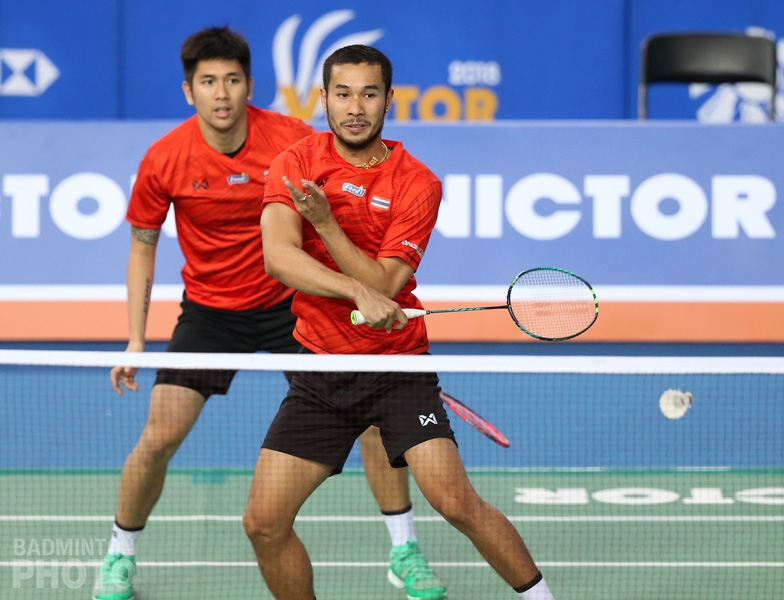
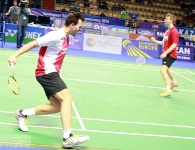
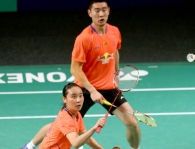
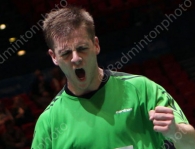
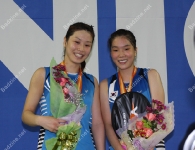
Leave a Reply